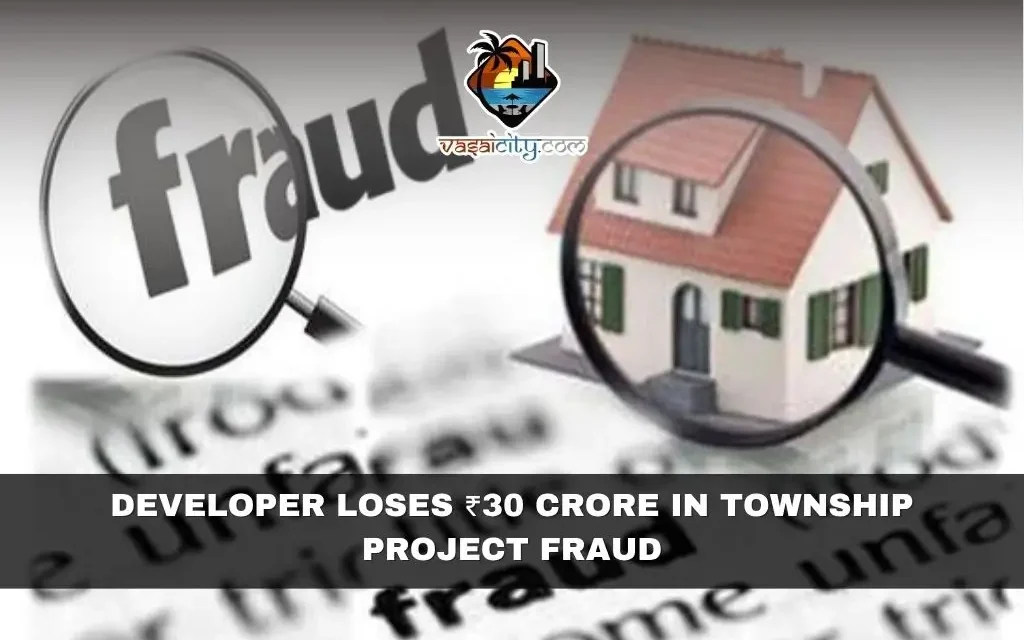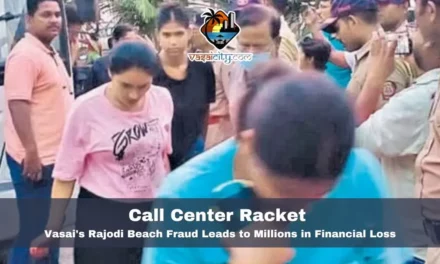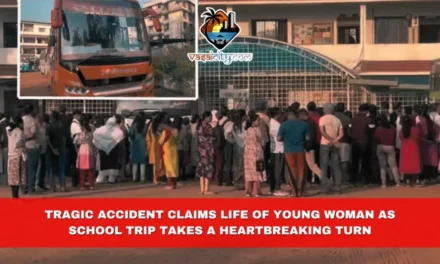A decade-old partnership meant to create a large residential township in the Vasai-Virar region has turned into a serious case of financial fraud, with a Mumbai-based developer accusing the directors of Viva Housing Pvt Ltd of misappropriating ₹30 crore.
The Mumbai Police’s Economic Offences Wing (EOW) is currently investigating the case, which involves some prominent names from the region, including relatives of local political heavyweight Bhai Thakur. The FIR was registered after Rohit Poddar, the managing director of Poddar Developers Ltd, approached the authorities with documents and allegations that funds meant for land purchase and township development were misused.
The Township Dream That Went Sour
Back in 2012, Poddar Developers entered into a partnership with Viva Housing Pvt Ltd with the goal of developing a large-scale residential township in the rapidly growing Vasai-Virar area. Viva Housing, a company led by the Thakur family and their associates, appeared to be an ideal partner due to their influence and local presence.
According to the FIR, over the years, Poddar’s firm invested a total of ₹30 crore into the joint venture. These funds were supposed to be used for acquiring land parcels, completing paperwork, and beginning construction. However, as time passed, Poddar claims he began noticing irregularities in the project’s progress and fund utilization.
Forged Documents and Fake Resolutions
A key turning point in the case came when Poddar discovered that Mehul Thakur—popularly known as Monty and a director of the Viva Group—had allegedly become the authorized signatory of Viva Housing through a forged board resolution. This unauthorized appointment allowed him to gain control over the company’s bank operations and decision-making.
Mehul is the son of Deepak Thakur and a close relative of Bhai Thakur, a well-known figure in the Vasai region. Along with Mehul, three others have been named in the FIR: Deepak Thakur, Vikas Vartak, and Radhe Khanolkar.
Poddar alleges that once Mehul gained control, funds were systematically moved from the company’s account to another firm linked to him. The money was not used for land acquisition as initially agreed. Instead, it was reportedly siphoned off for personal or unrelated business purposes.
13-Year Timeline of Suspicion
What has shocked many in the real estate and legal circles is the length of time the alleged fraud spanned—over 13 years, from 2012 to as recently as June 2025. Poddar claims he continued to follow up with the directors of Viva Housing, expecting project work to begin, only to be met with delays and excuses.
It wasn’t until he demanded full financial records and conducted an internal investigation that the extent of the alleged misappropriation came to light.
EOW officers have stated that despite receiving a substantial sum of ₹30 crore, not even a single acre of land was purchased for the intended township. This revelation has deepened suspicions about the true intent behind the partnership and how the accused were able to operate without scrutiny for so long.
Not Mehul Thakur’s First Run-In with the Law
This isn’t the first time Mehul Thakur has found himself in legal trouble. In 2021, he was arrested by the Enforcement Directorate (ED) in a separate money laundering case involving HDIL promoter Rakesh Wadhawan. That case was linked to the massive PMC Bank fraud that caused panic among thousands of account holders.
Mehul was later released on bail in 2023. Now, his name has once again surfaced—this time in a case that hits close to home and involves a project meant to benefit the Vasai-Virar community.
Police Investigation Underway
The EOW has begun examining financial statements, company correspondence, and transaction records to understand how the scam was executed and concealed. Investigators believe that shell firms and bogus accounting entries may have been used to make the diverted funds appear legitimate.
Authorities are also reviewing how the board resolution to appoint Mehul as the authorized signatory was allegedly forged and how it passed without objection for so many years.
Meanwhile, the accused have not made any public statements regarding the allegations. Sources say notices have been sent, and questioning is likely to begin soon.
Breach of Trust in Business Partnerships
This case highlights how partnerships that begin on the basis of mutual trust and reputation can go wrong. When powerful names are involved, it becomes difficult for business partners to question irregularities or raise alarms, especially in tightly-knit regions like Vasai.
Poddar, in his complaint, has stated that he trusted the Viva Group due to their reputation and longstanding local influence. He believed that his investment would help build much-needed housing in a growing suburb. But the alleged misuse of funds and forged documents shattered that belief.
A Wake-Up Call for the Real Estate Sector
The real estate industry in India often operates on a mix of formal contracts and informal understandings. This case may serve as a wake-up call for developers and investors to conduct deeper due diligence, enforce stricter financial checks, and ensure that company governance isn’t bypassed through internal manipulation.
For now, the spotlight remains on the accused and whether law enforcement will be able to bring clarity and justice in a case that may not just be about money—but also about power and influence.
As the investigation unfolds, it is likely to expose more about how real estate and politics are intertwined in many parts of India, and how the lack of transparency can result in massive financial losses and broken trust.










